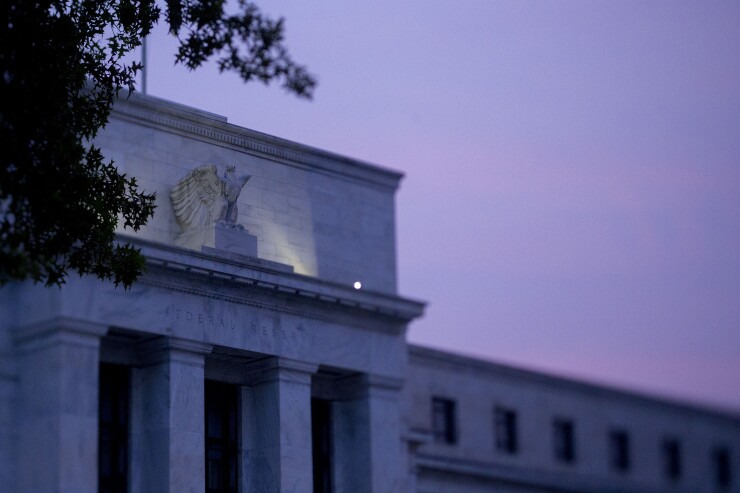Retailers have invested billions in their supply chain and workforce in recent years to meet the needs of modern consumers. Today, a growing number of leading retailers offer omnichannel options that allow consumers to shop with a click and pick up or have their items delivered to their home by the end of the day.
Unfortunately, our financial service system hasn’t kept pace. The accompanying financial transaction to these purchases can take up to 72 hours to clear. And the real harm falls on lower-income families who are often waiting a week to two weeks for their household funds, living paycheck to paycheck.
Which is why the Fed’s decision to implement a real-time payments system, FedNow, is so badly needed.

The U.S. is woefully behind when it comes to speeding up the payments process, despite having the most expensive fees and charges for accepting electronic payments in the industrialized world. That’s a problem for retailers and other merchants, particularly smaller businesses that have less access to credit lines and reserves to fund operations and make payroll while waiting for payments to process.
An estimated 12 million Americans use payday lending to make ends meet, according to the Pew Charitable Trusts. Most of these individuals come from low-income families, and many of them are underbanked or living on a fixed income. The average payday loan customer pays $520 a year in fees to repeatedly borrow $325 in credit. Combined—this group least able to afford high interest and fees—paid a whopping $9 billion to the financial services industry for short term loans.
Critics of the payday lending industry have long sought to cap fees and enact reforms to limit the damage these modern-day loan sharks can have on family budgets. But a far simpler and more sweeping solution is now in the works.
The Federal Reserve’s FedNow instant payments system will dramatically speed up payment processing, essentially allowing people and businesses to receive money in their accounts within seconds of a transaction.
Faster payments to retailers, restaurants, and other merchants will ultimately mean faster paychecks for millions of workers. Instead of waiting for a paycheck every other week—and paying astronomical fees to payday lenders to address short term needs—many workers could start getting paid shortly after the end of their shift. The result will be a body blow to the payday lending industry and the fees and interest they leach from hardworking families. The Fed has a huge opportunity to not only help merchants who would benefit from better cash flow, but to help those American workers who are currently paying fees and interest they can’t afford.
Large Wall Street banks and their defenders have come out against the Federal Reserve proposal, arguing that the private sector alone can deliver a new financial transactions regime that speeds up payments. But these banks don’t have a great track record delivering for merchants or low-income customers. Despite hoovering in over $80 billion a year in swipe fees collected every time a customer uses their credit or debit card, these same banks have invested a fraction of these fees into a new system to process faster payments. As a result, the U.S. is already behind countries like Mexico and South Africa that have instituted such reforms.
Not surprisingly, the largest banks are opposed to the Fed stepping in and instituting a faster payments regime—they don’t benefit when merchants and consumers have access to their money in real time. In fact, it will likely mean less in fees, interest, and overdraft charges for Wall Street’s largest banks. Their gripes and complaints against FedNow will be numerous, loud, and misleading—and they have the lobbying resources to cause a commotion. But Congress shouldn’t be swayed by Wall Street’s antics and misleading rhetoric; they should support the Fed as they work to implement the FedNow system to the benefit of all consumers.
Merchants, community banks, technology firms and consumer groups are united on this issue—and support the Fed for moving forward with its FedNow faster payments system. If we rely on Wall Street banks to implement a system that results in more transparency, more certainty and lower fees—American merchants and families will be waiting a long time.





